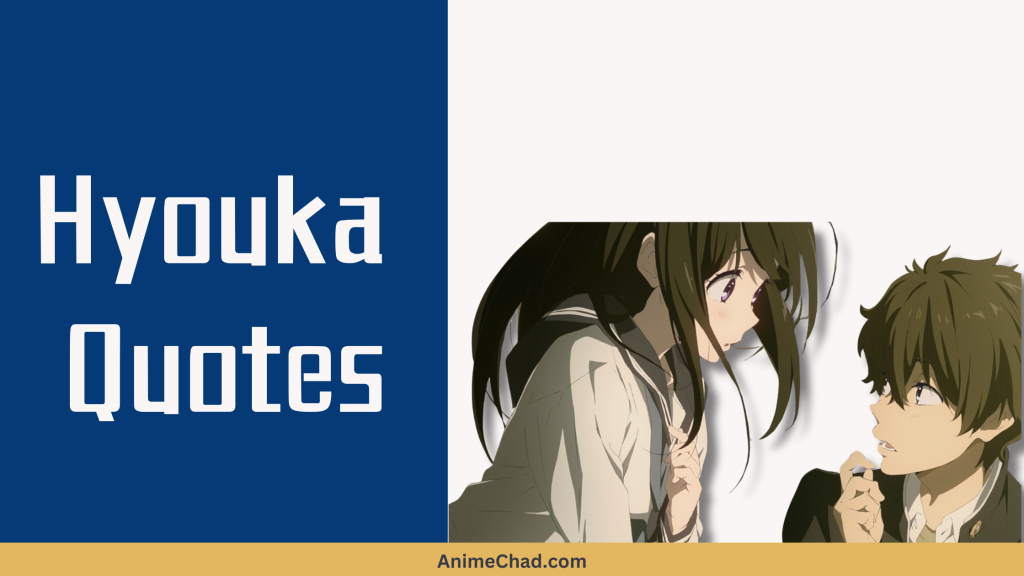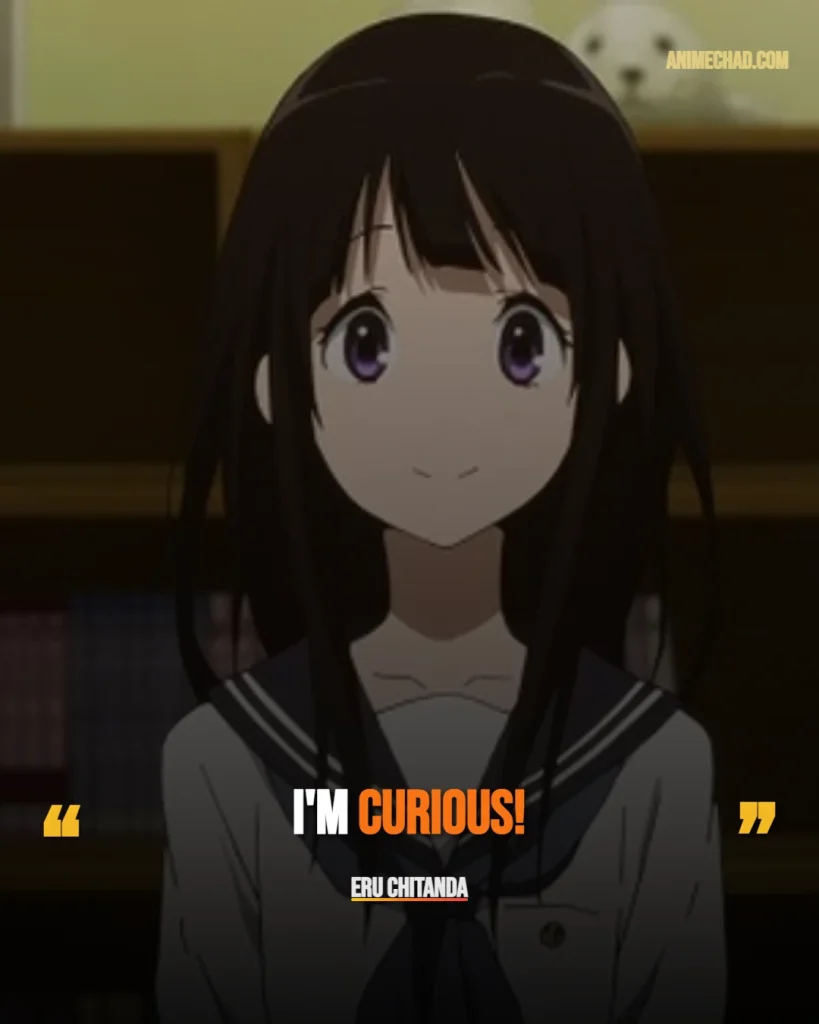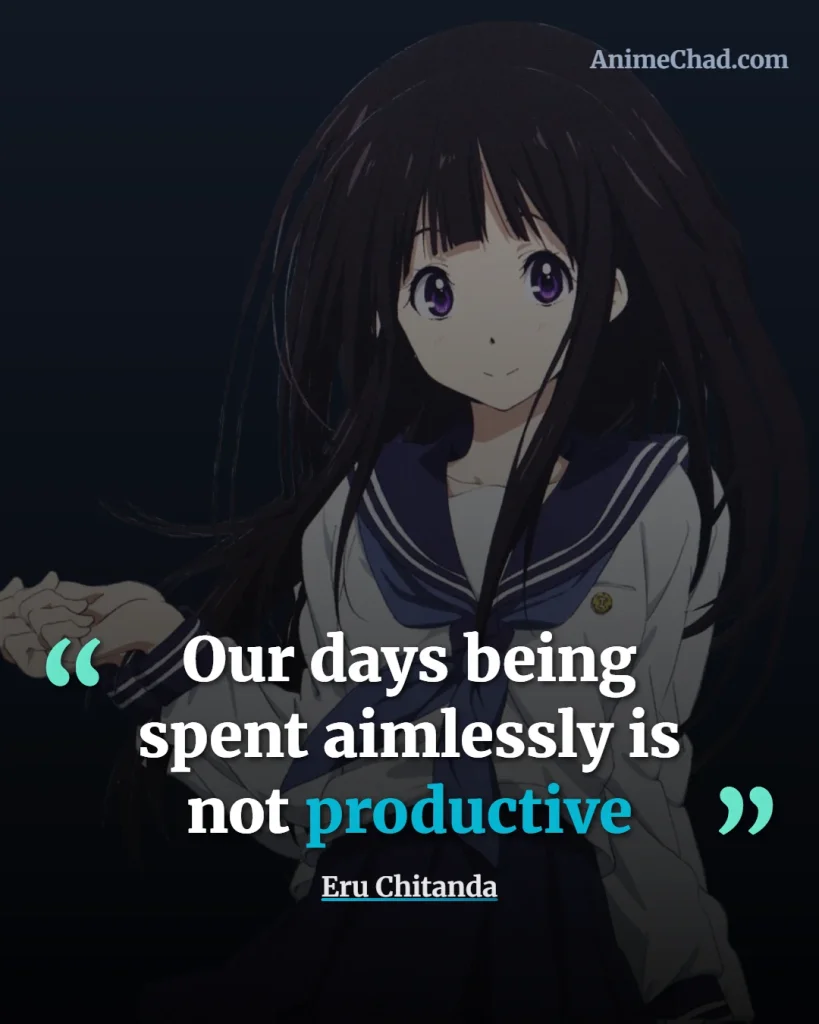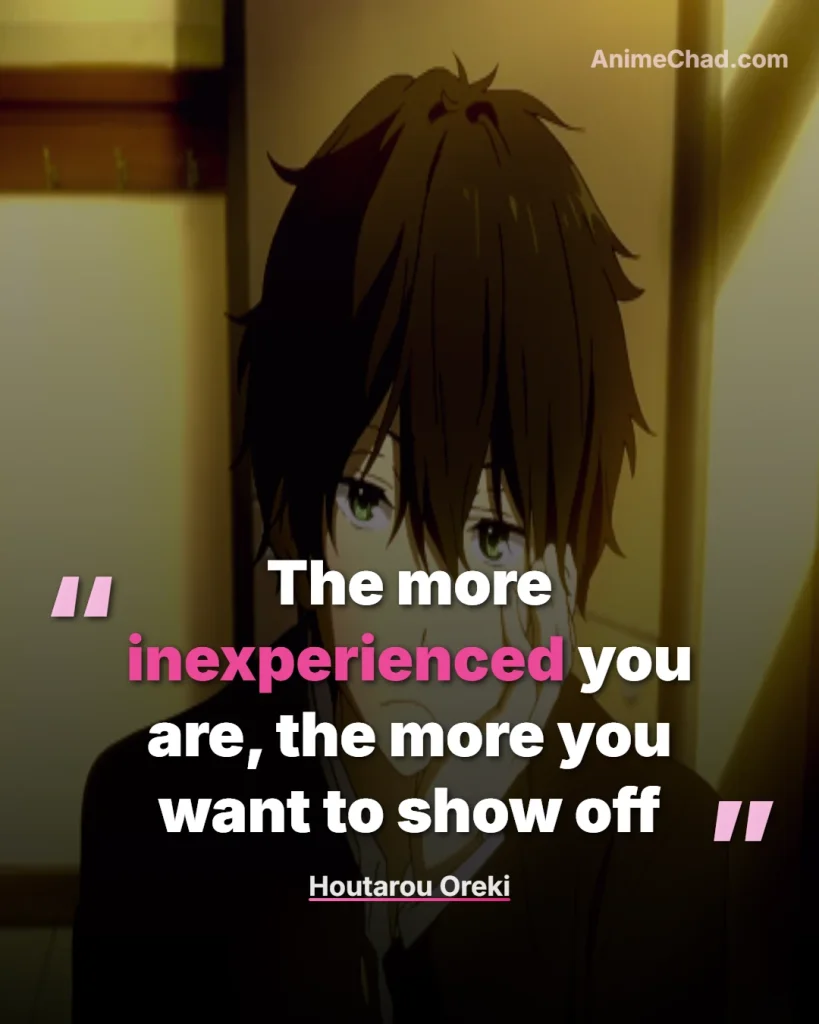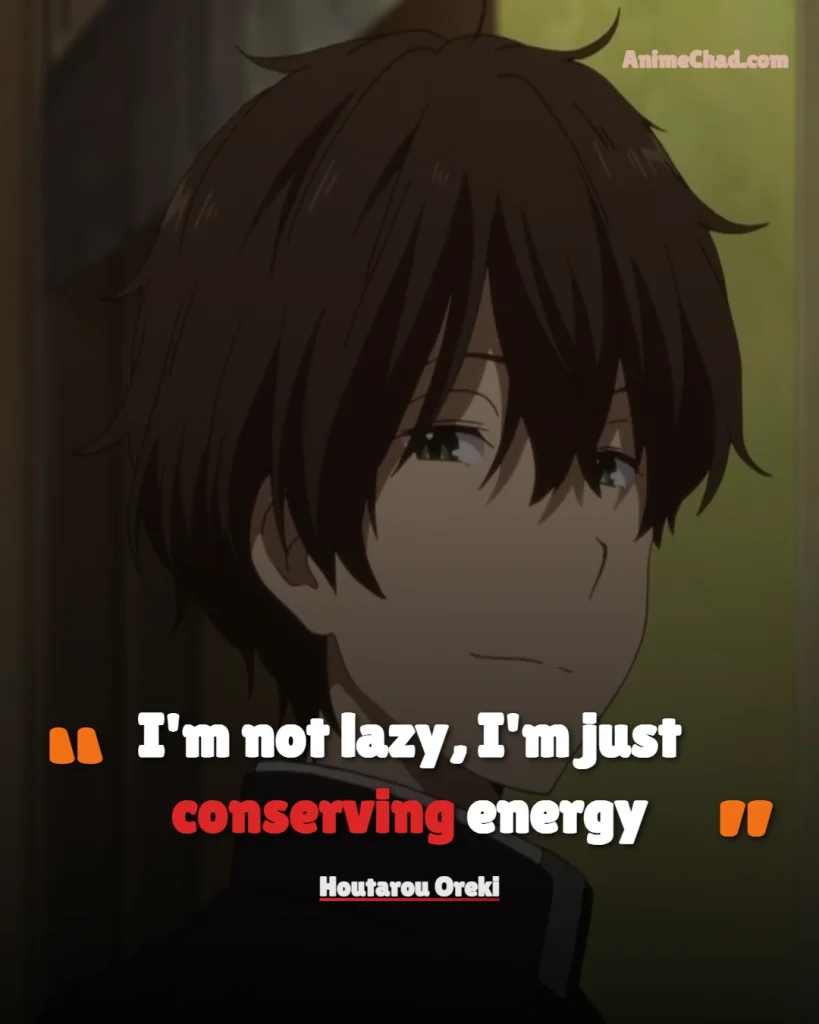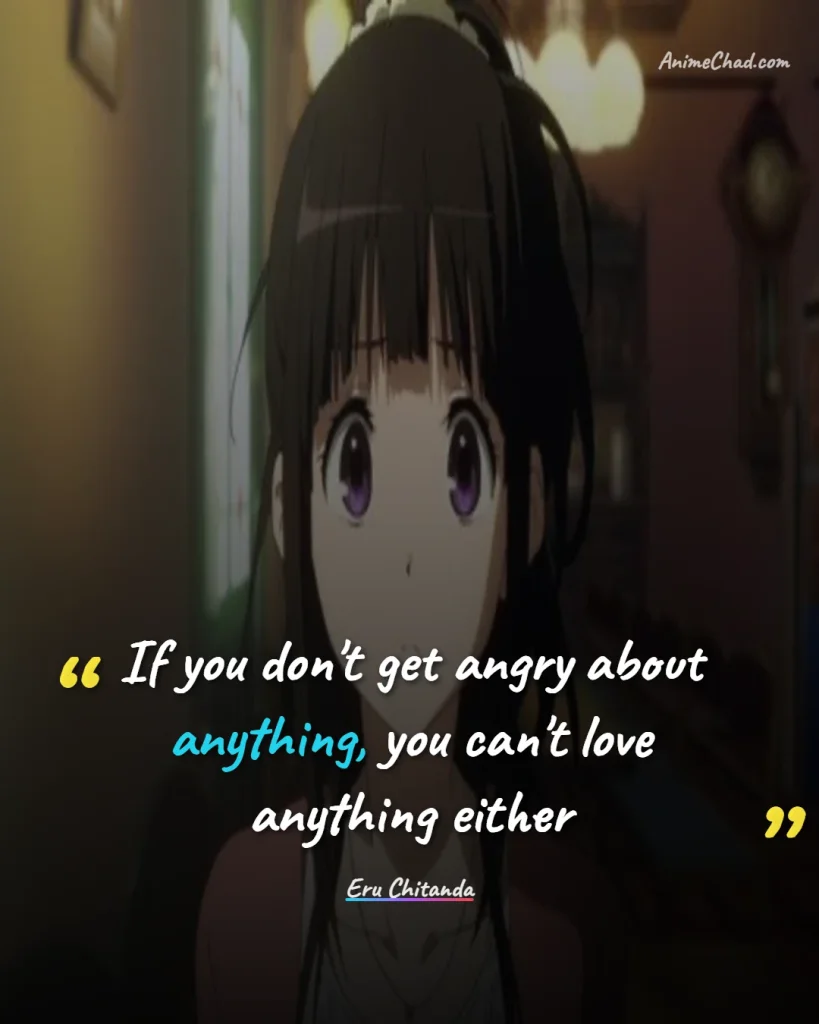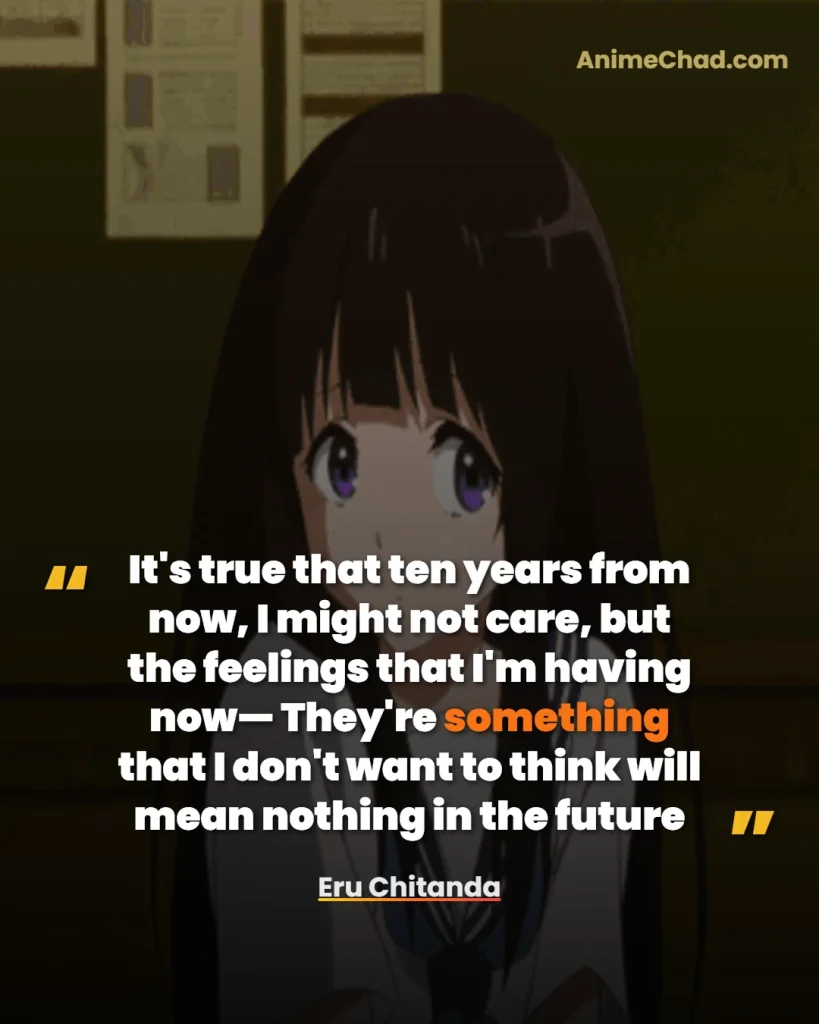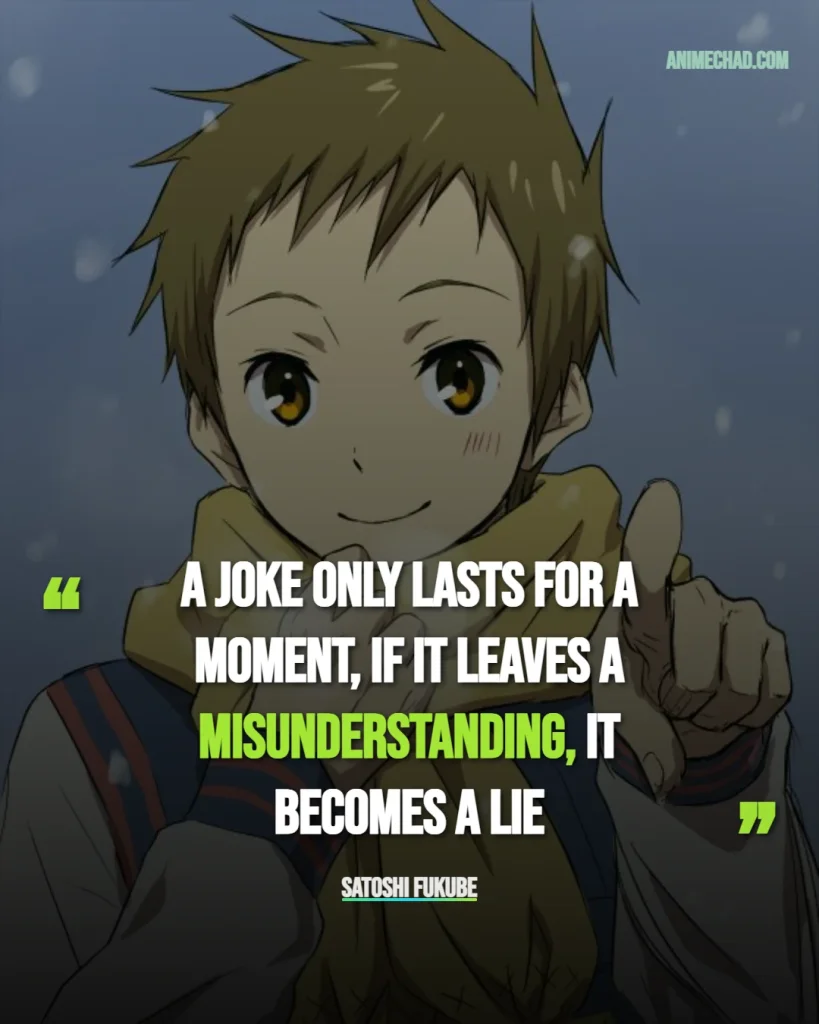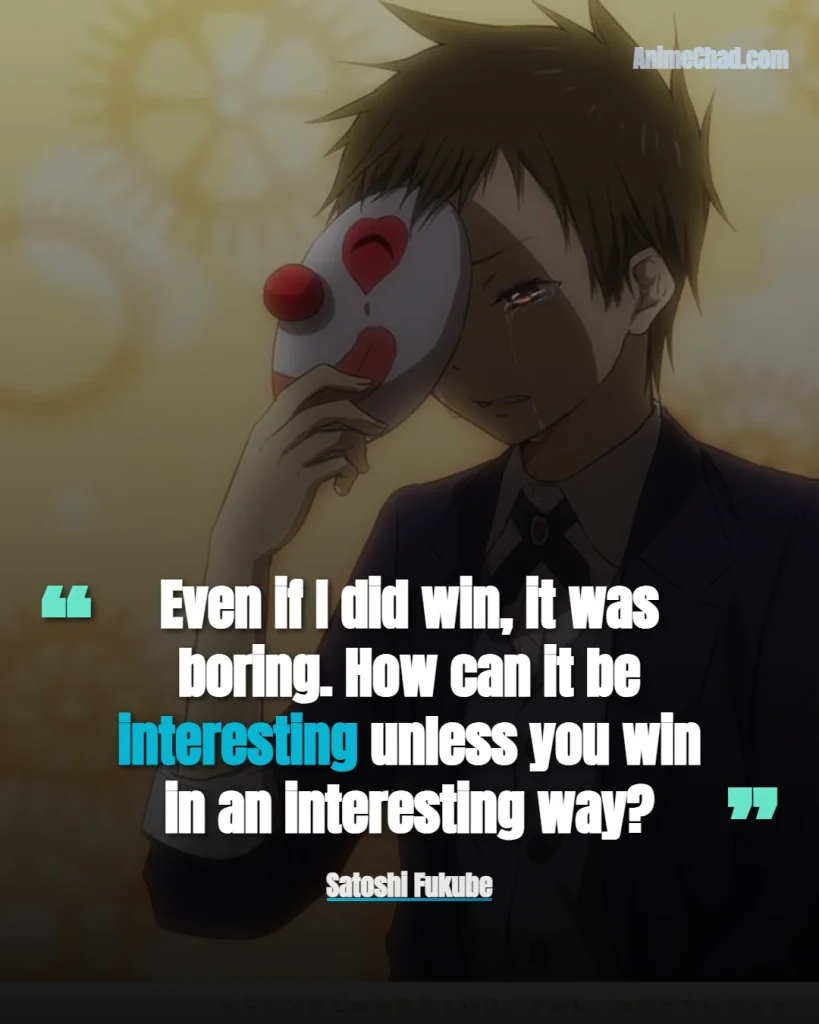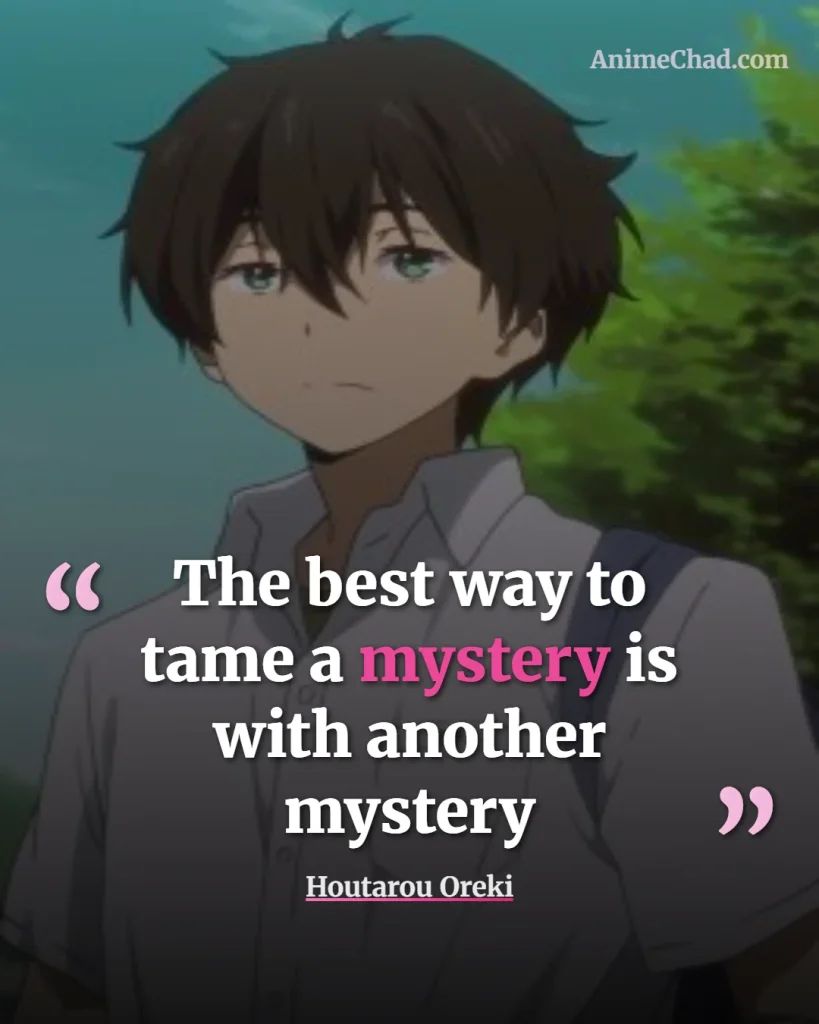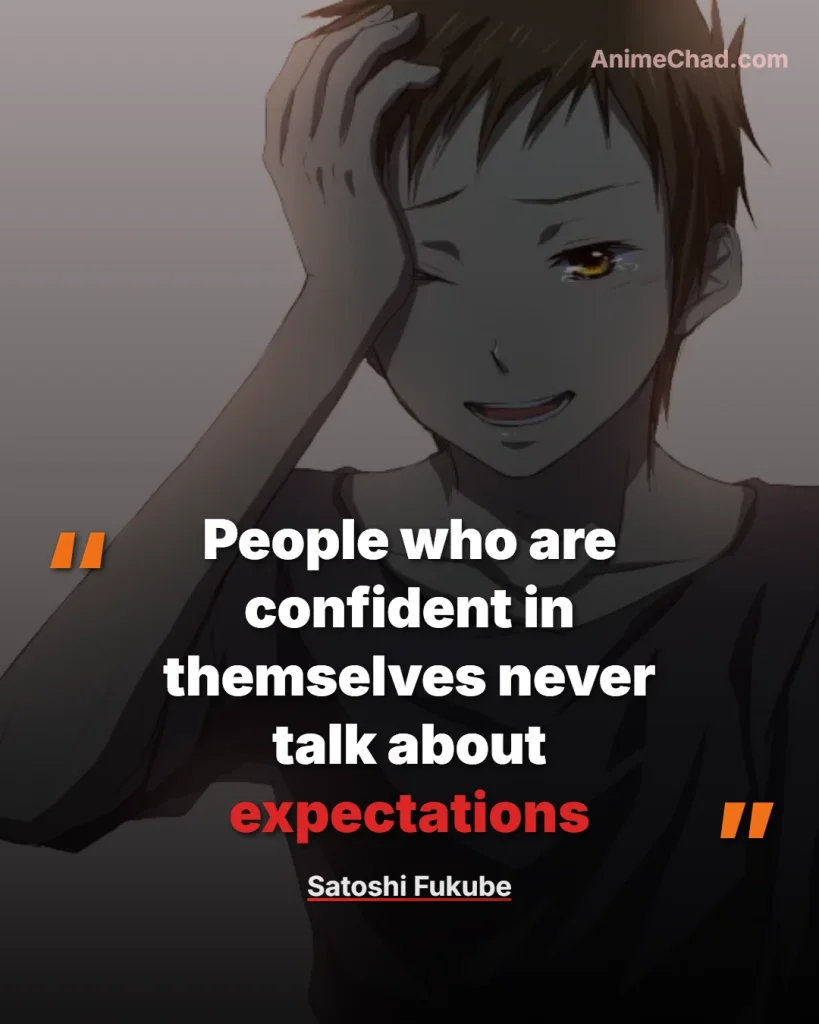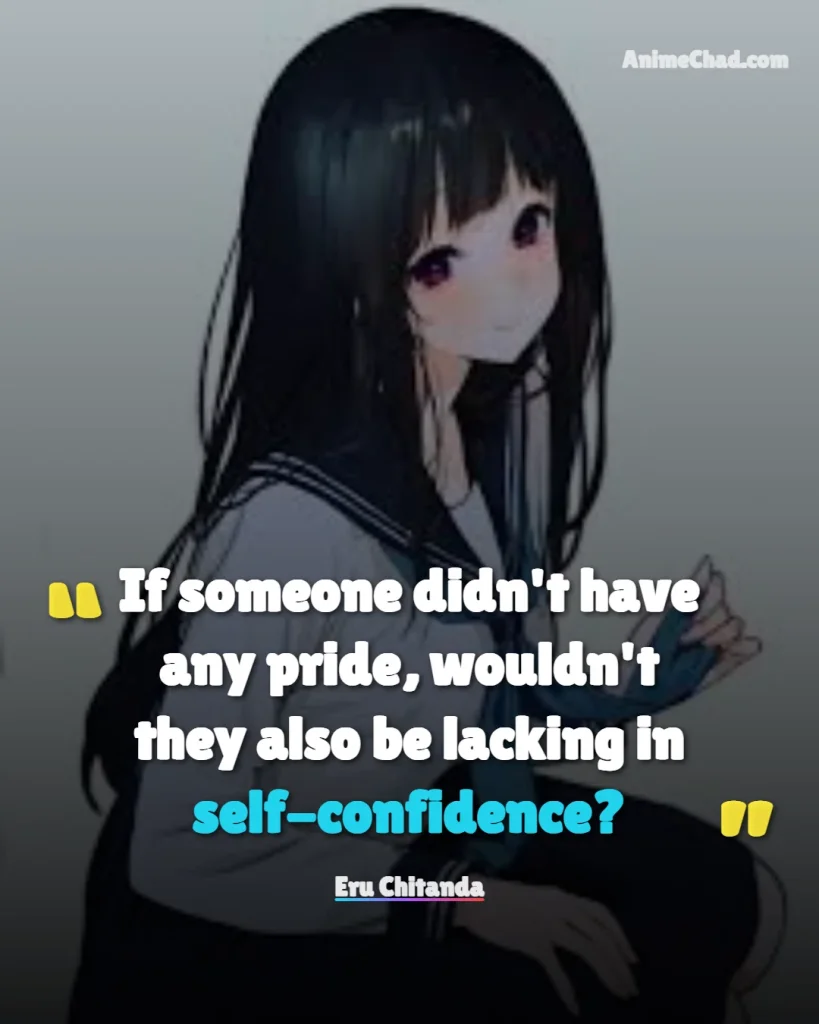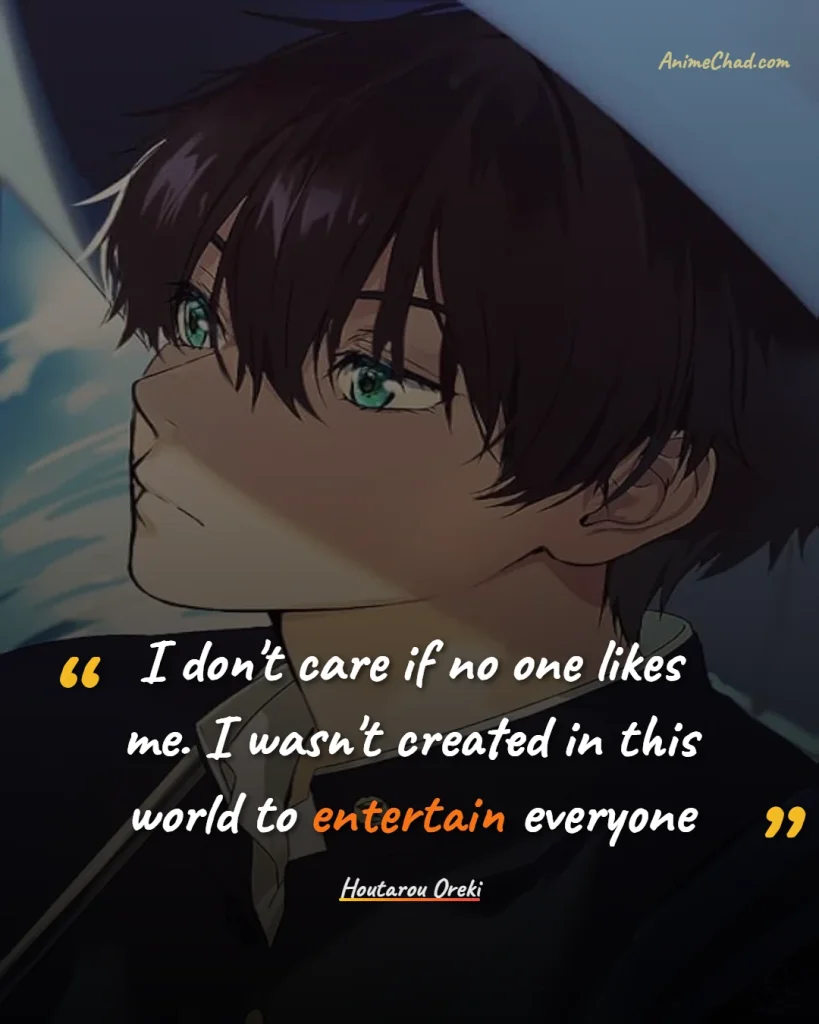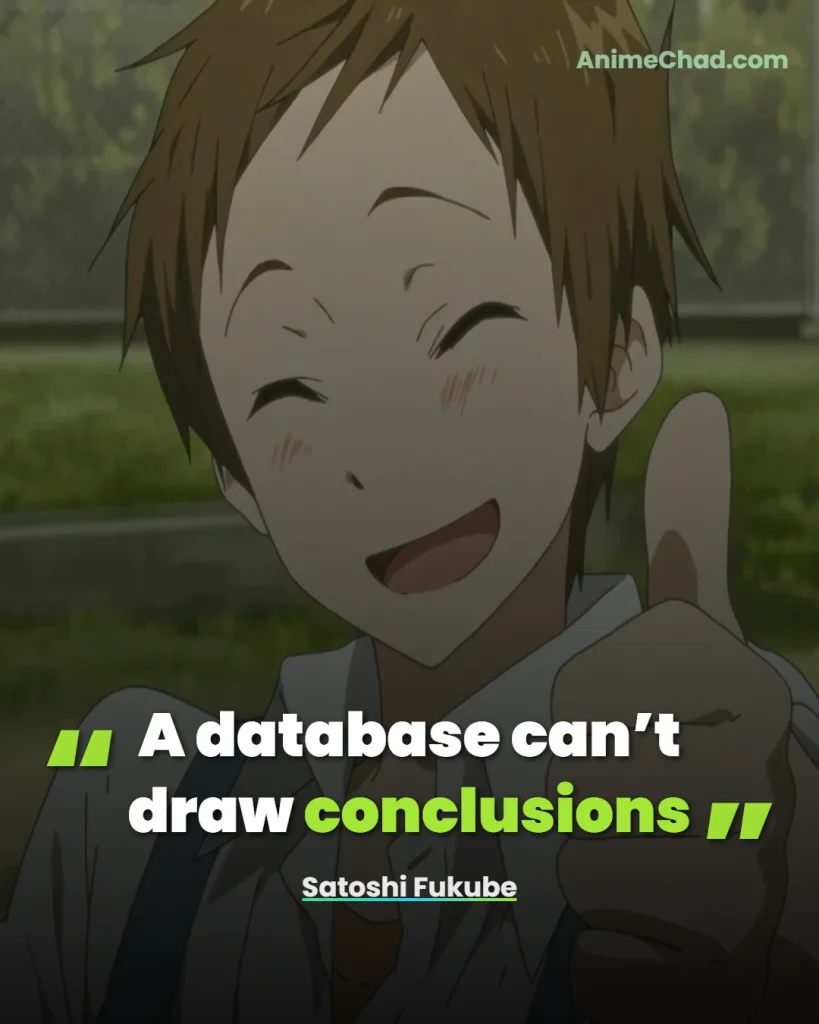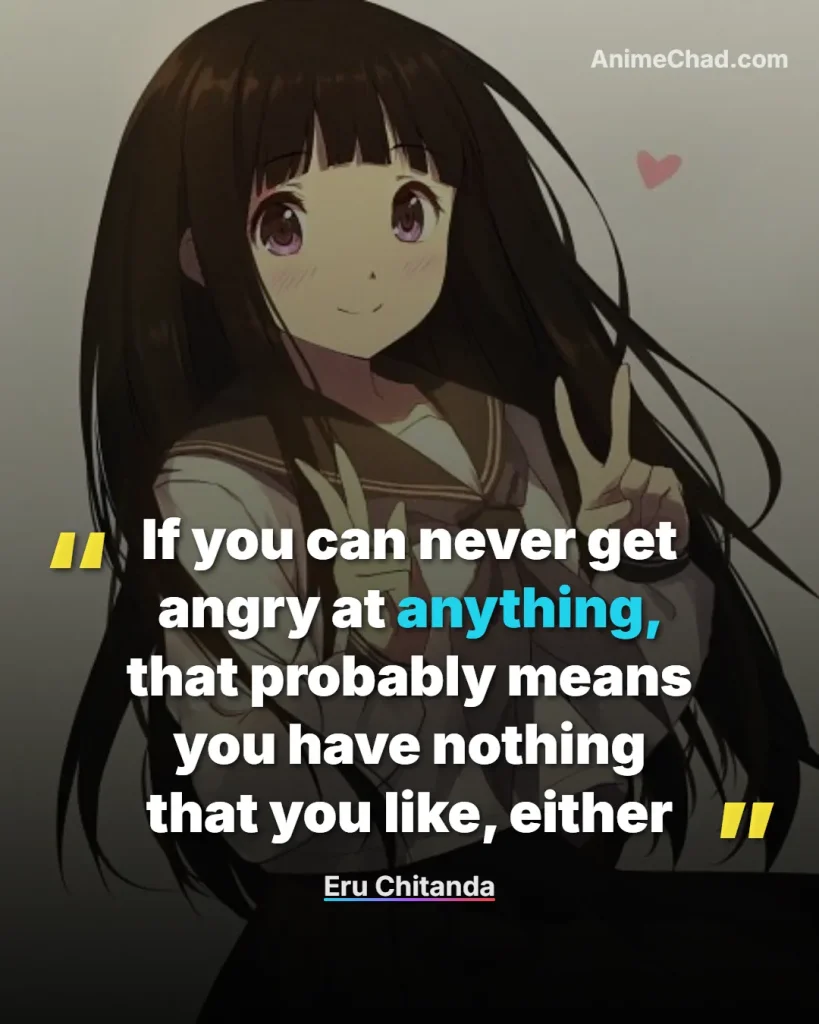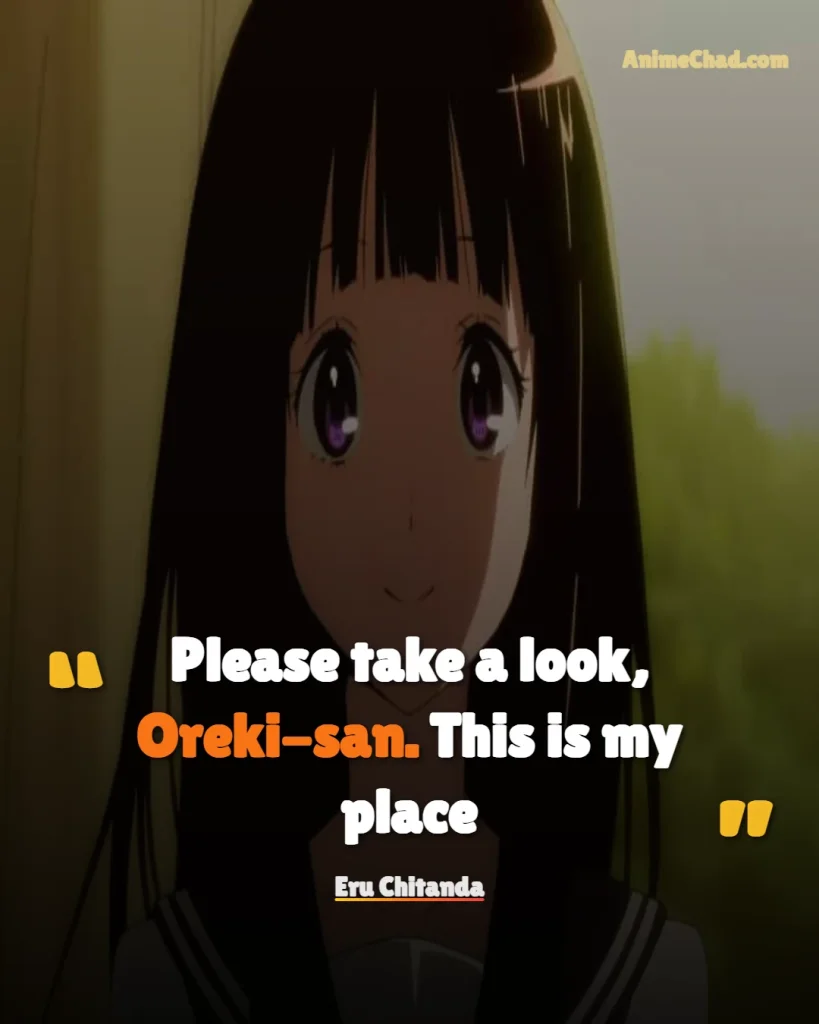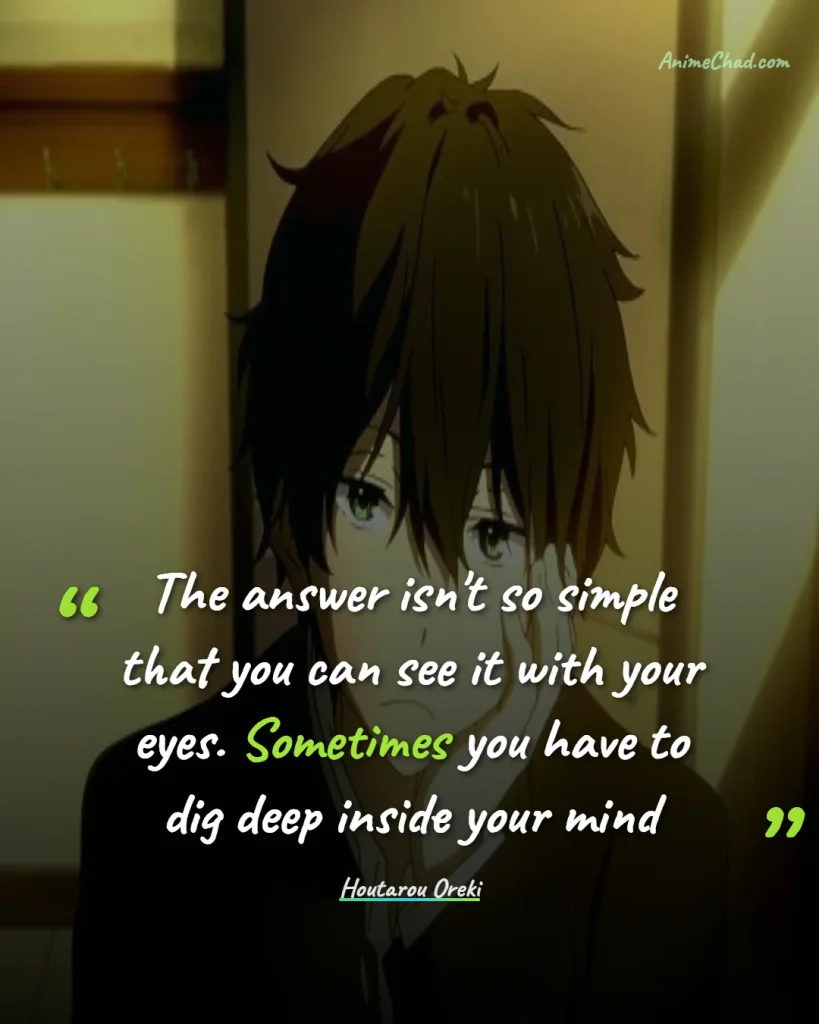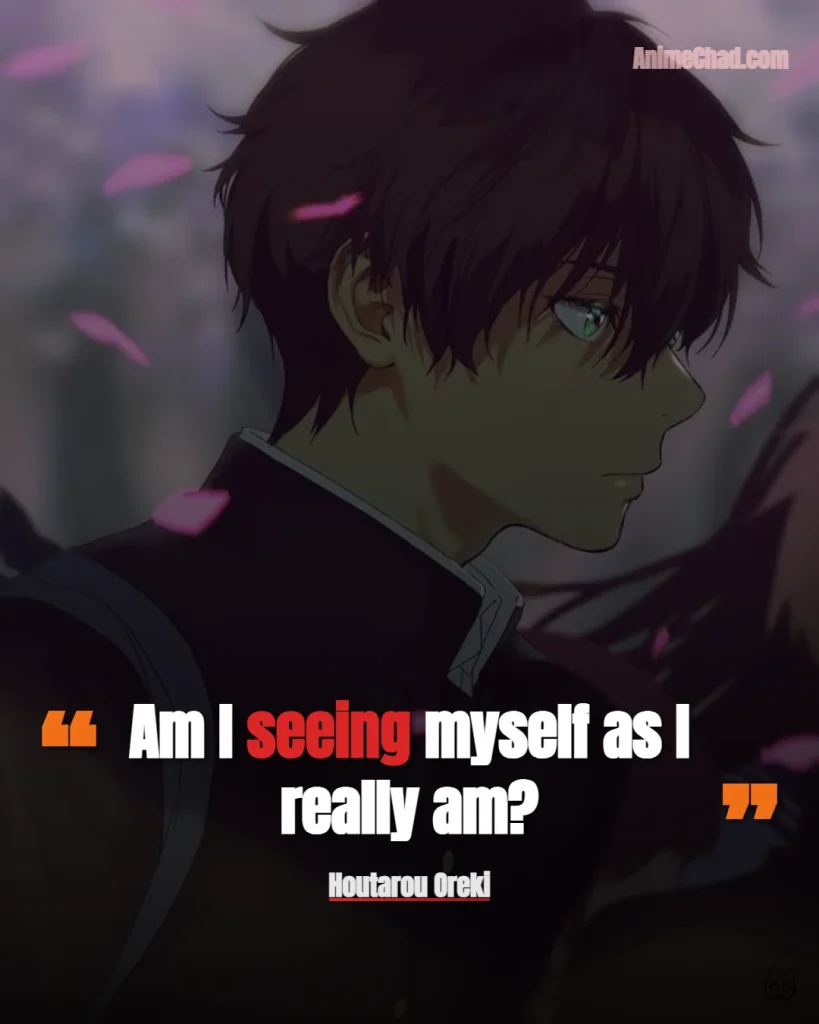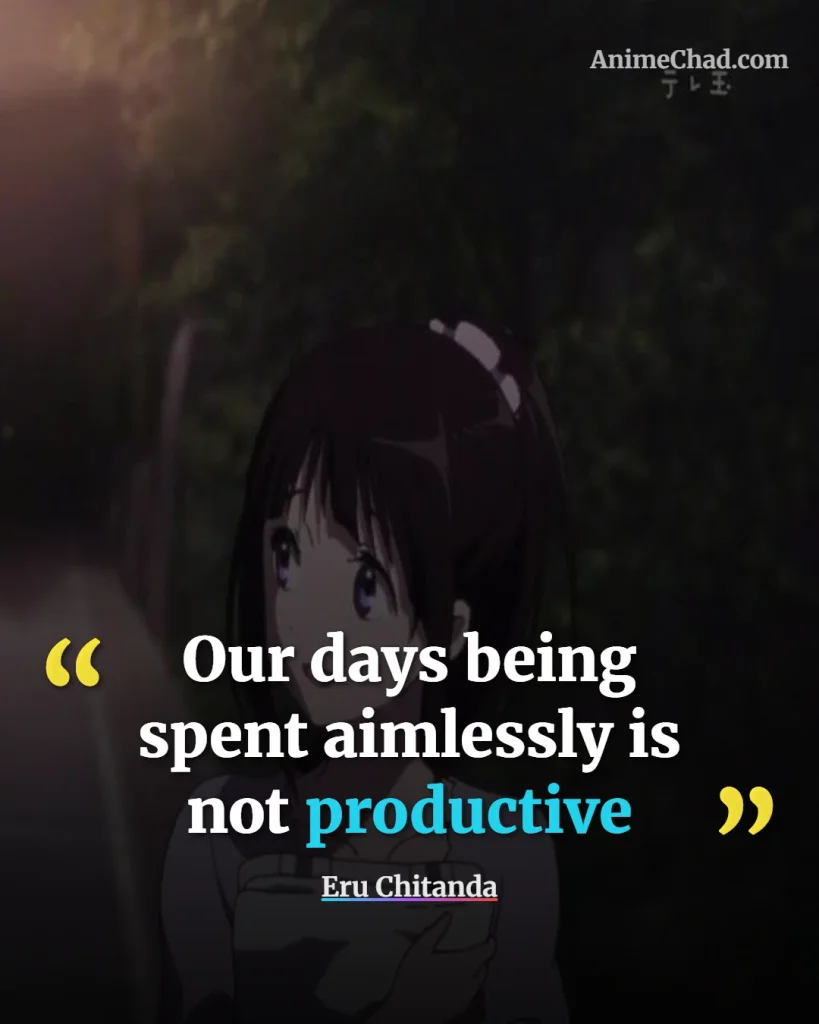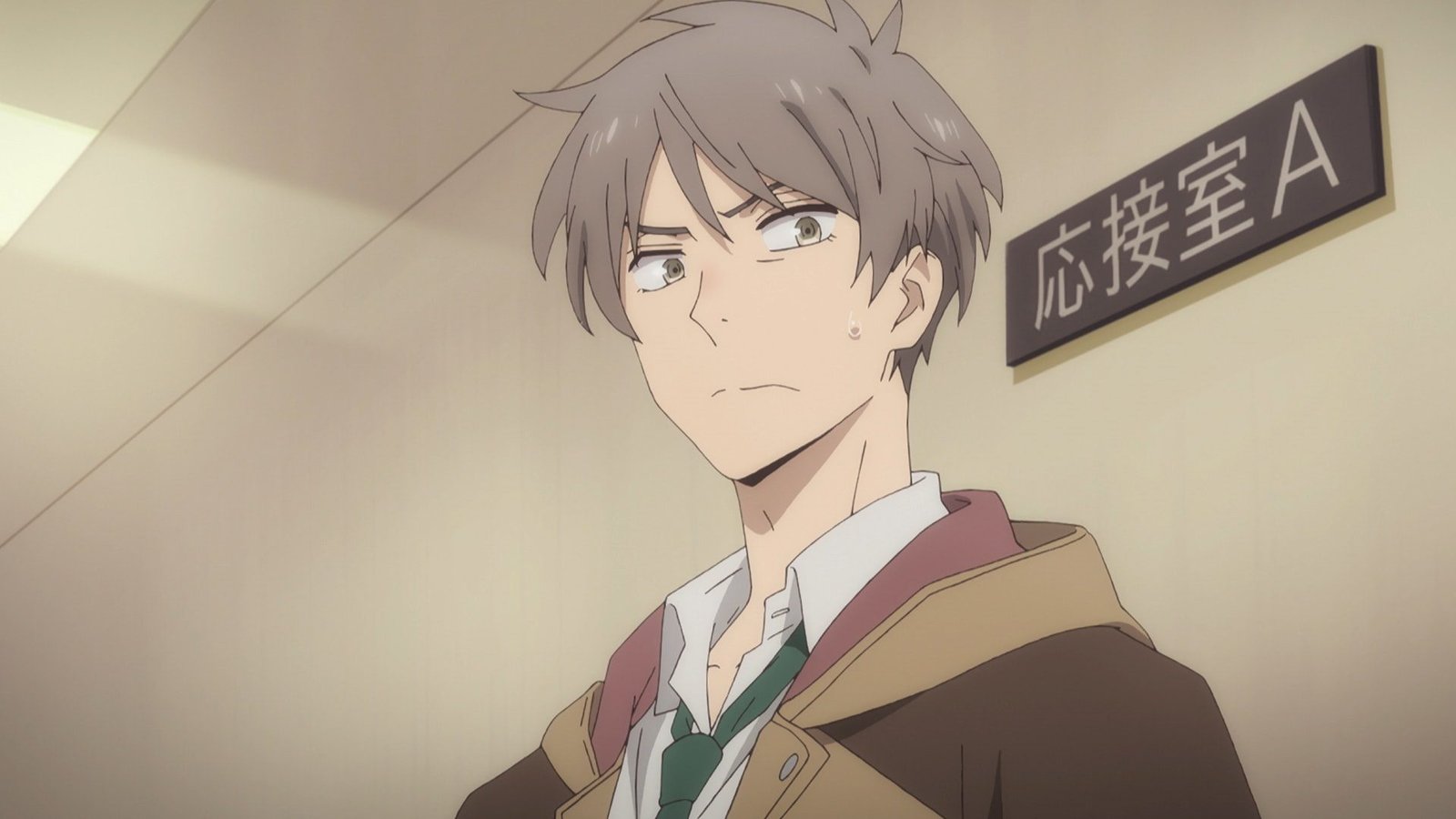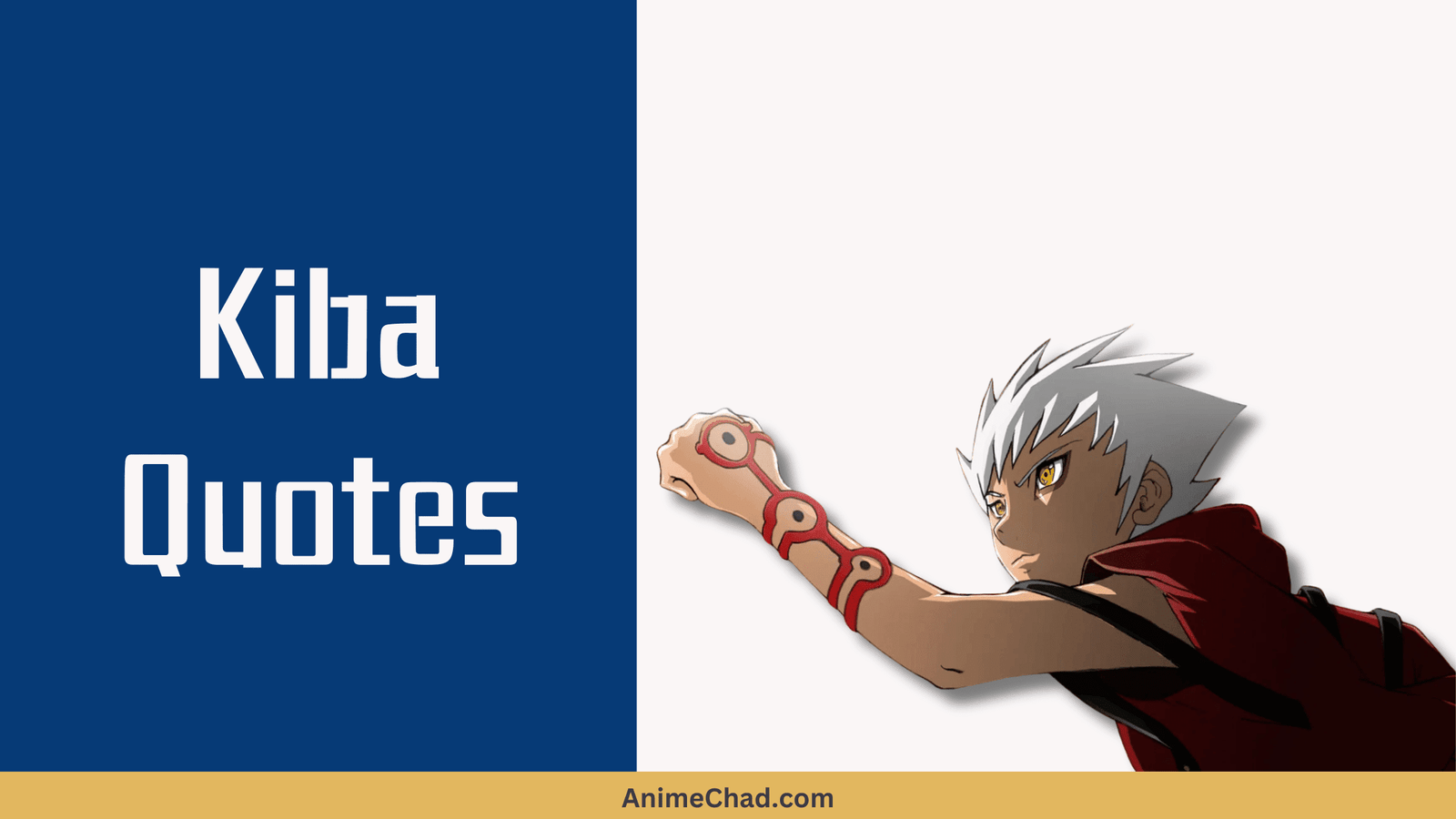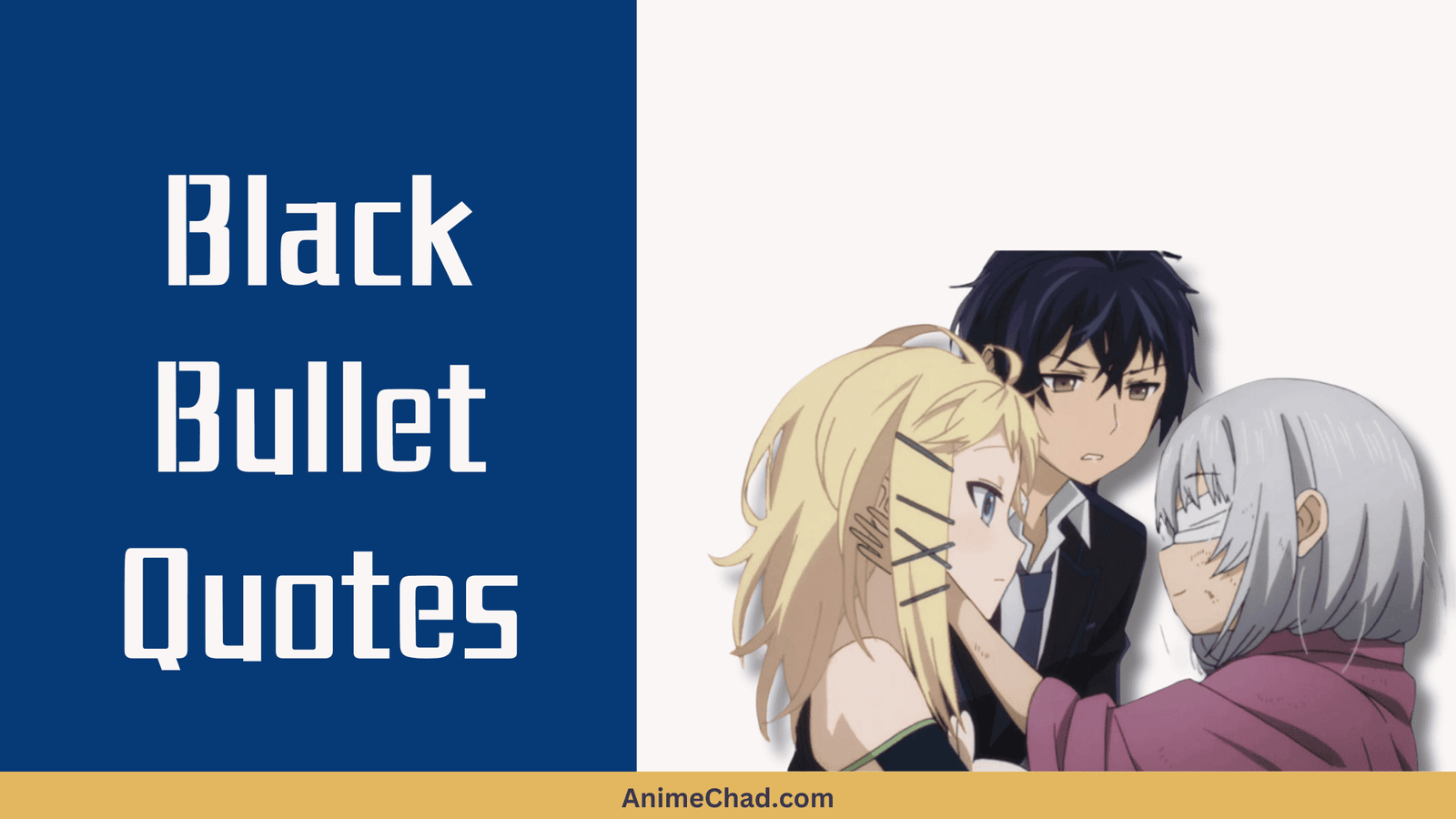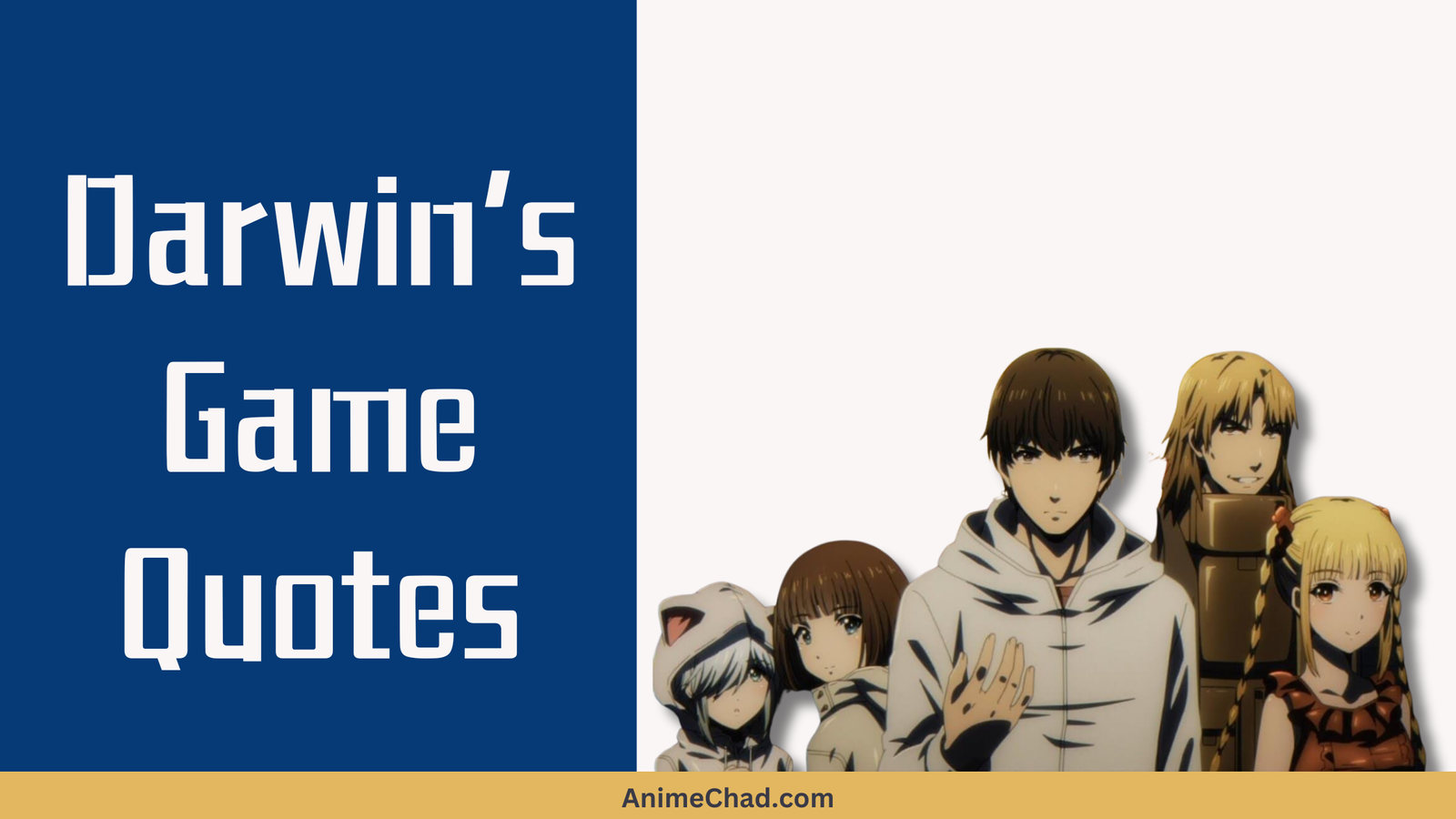Hyouka is a slice-of-life anime series following Houtarou Oreki, a high school student who prefers conserving energy over exertion, and his involvement with the Classics Club. It delves into themes of curiosity, personal growth, the value of everyday mysteries, and the subtle bonds that challenge one’s self-imposed limits.
This curated collection of 25 quotes highlights pivotal moments from the series, showcasing character development and tying into its broader exploration of introspection and connection across various arcs.
If I don’t have to do it, I won’t. If I have to do it, make it quick
Episode 1 (What Should Be Here?)
Houtarou Oreki
Defines Oreki’s initial energy-conserving philosophy, setting the tone for his reluctant growth through Chitanda’s influence.
I’m curious!
Episode 1 (What Should Be Here?)
Eru Chitanda
Chitanda’s iconic plea ignites Oreki’s involvement in mysteries, symbolizing the series’ theme of curiosity overcoming apathy with emotional urgency.
Nothing beats an impromptu joke. It creates a breeding ground for lies
Episode 1 (What Should Be Here?)
Satoshi Fukube
Introduces Fukube’s humorous database persona, highlighting how lighthearted moments can lead to deeper misunderstandings in relationships.
Our days being spent aimlessly is not productive
Episode 2 (The Hina Festival)
Eru Chitanda
Challenges the club’s inertia during the festival prep, underscoring themes of purpose and the quiet dissatisfaction with stagnation.
The more inexperienced you are, the more you want to show off
Episode 3 (No Cut Losses)
Houtarou Oreki
Oreki reflects on club dynamics, revealing his observational sharpness and budding self-awareness amid competitive tensions.
I’m not lazy, I’m just conserving energy
Episode 4 (No Cut Losses)
Houtarou Oreki
A defensive quip during a club debate, it exposes Oreki’s vulnerability and foreshadows his internal conflict with forced engagement.
If you don’t get angry about anything, you can’t love anything either
Episode 6 (In the Bleak Midwinter)
Eru Chitanda
From Chitanda’s “seven deadly sins” reflection, it connects passion to emotional depth, marking her growth in understanding Oreki’s detachment.
It’s true that ten years from now, I might not care, but the feelings that I’m having now— They’re something that I don’t want to think will mean nothing in the future
Episode 5 (The Day the ‘H’ Disappeared)
Eru Chitanda
During the locked-room mystery, this plea emphasizes the value of present emotions, tying into themes of fleeting youth and personal significance.
A joke only lasts for a moment, if it leaves a misunderstanding, it becomes a lie
Episode 7 (Fool’s End Roll)
Satoshi Fukube
In the film club arc, it reveals Fukube’s hidden frustrations, developing his character from joker to someone grappling with unspoken truths.
Even if I did win, it was boring. How can it be interesting unless you win in an interesting way?
Episode 7 (Fool’s End Roll)
Satoshi Fukube
Amid script tensions, this line shows Fukube’s perfectionism, linking to the series’ motif of finding joy in the mundane over hollow victories.
The best way to tame a mystery is with another mystery
Episode 8 (Fool’s End Roll)
Houtarou Oreki
Oreki’s deduction in the movie plot twist highlights his deductive evolution, blending peaceful puzzle-solving with intellectual thrill.
People who are confident in themselves never talk about expectations
Episode 9 (Fool’s End Roll)
Satoshi Fukube
During arc resolution, it critiques self-doubt, advancing Fukube’s arc toward accepting limitations without resentment.
If someone didn’t have any pride, wouldn’t they also be lacking in self-confidence?
Episode 6 (In the Bleak Midwinter)
Eru Chitanda
Part of Chitanda’s introspective talk, it explores pride’s role in identity, reflecting her privileged yet earnest quest for understanding others.
I don’t care if no one likes me. I wasn’t created in this world to entertain everyone
Episode 10 (The Ladder to Climax)
Houtarou Oreki
In the cultural festival buildup, this asserts Oreki’s independence, showing his gradual shift from isolation to selective connection.
A database can’t draw conclusions
Episode 11 (The Ladder to Climax)
Satoshi Fukube
Fukube admits his observational limits during event planning, a pivotal moment of humility that deepens club bonds through shared vulnerability.
Those with talent who aren’t aware of themselves cause pain for those who have none
Episode 11 (The Ladder to Climax)
Fuyumi Irisu
Irisu’s advice to Oreki in the festival arc underscores unintended consequences of gifts, tying into themes of self-awareness and empathy.
Whatever I do, I’ll always be me. I won’t tone myself down to fit in
Episode 12 (The Ladder to Climax)
Satoshi Fukube
Amid festival chaos, it reinforces Fukube’s resolve, highlighting growth in embracing flaws over conformity in peaceful daily life.
We don’t know if trying our best will help, but we do know that if we don’t try our best, it won’t help for sure!
Episode 13 (What’s on Her Mind?)
Eru Chitanda
Encourages Oreki during a personal dilemma, embodying perseverance and pulling him toward active participation in relationships.
If you can never get angry at anything, that probably means you have nothing that you like, either
Episode 13 (What’s on Her Mind?)
Eru Chitanda
In a heartfelt exchange, it challenges Oreki’s passivity, linking emotional restraint to unfulfilled passions in the series’ introspective core.
Please take a look, Oreki-san. This is my place
Episode 14 (The Long Winter in Which We Dreamt of Spring)
Eru Chitanda
Inviting Oreki home, it reveals Chitanda’s roots and vulnerability, fostering deeper connection and themes of belonging beyond surface curiosity.
The answer isn’t so simple that you can see it with your eyes. Sometimes you have to dig deep inside your mind
Episode 15 (The Long Winter in Which We Dreamt of Spring)
Houtarou Oreki
During family lore investigation, this shows Oreki’s maturing insight, evolving from quick fixes to profound internal reflection.
Ghosts are just withered flowers
Episode 16 (The Long Winter in Which We Dreamt of Spring)
Houtarou Oreki
Metaphor for past regrets in Chitanda’s arc, it poetically connects loss to renewal, emphasizing emotional healing in quiet moments.
I won’t ever be the best at anything. Or rather, you might say that I’ve stopped trying to be
Episode 17 (The Kudryavka Sequence)
Satoshi Fukube
In the valentine’s event, this confession marks Fukube’s acceptance of mediocrity, advancing his development toward genuine self-contentment.
Am I seeing myself as I really am?
Episode 19 (The Juumonji Incident)
Houtarou Oreki
Post-festival reflection questions Oreki’s identity, a turning point in his arc from energy saver to self-aware individual.
Our days being spent aimlessly is not productive
Episode 22 (The Thing That Binds Us)
Eru Chitanda
Closing the series, it reaffirms the club’s purpose, symbolizing collective growth and the enduring theme of curiosity’s quiet power.

